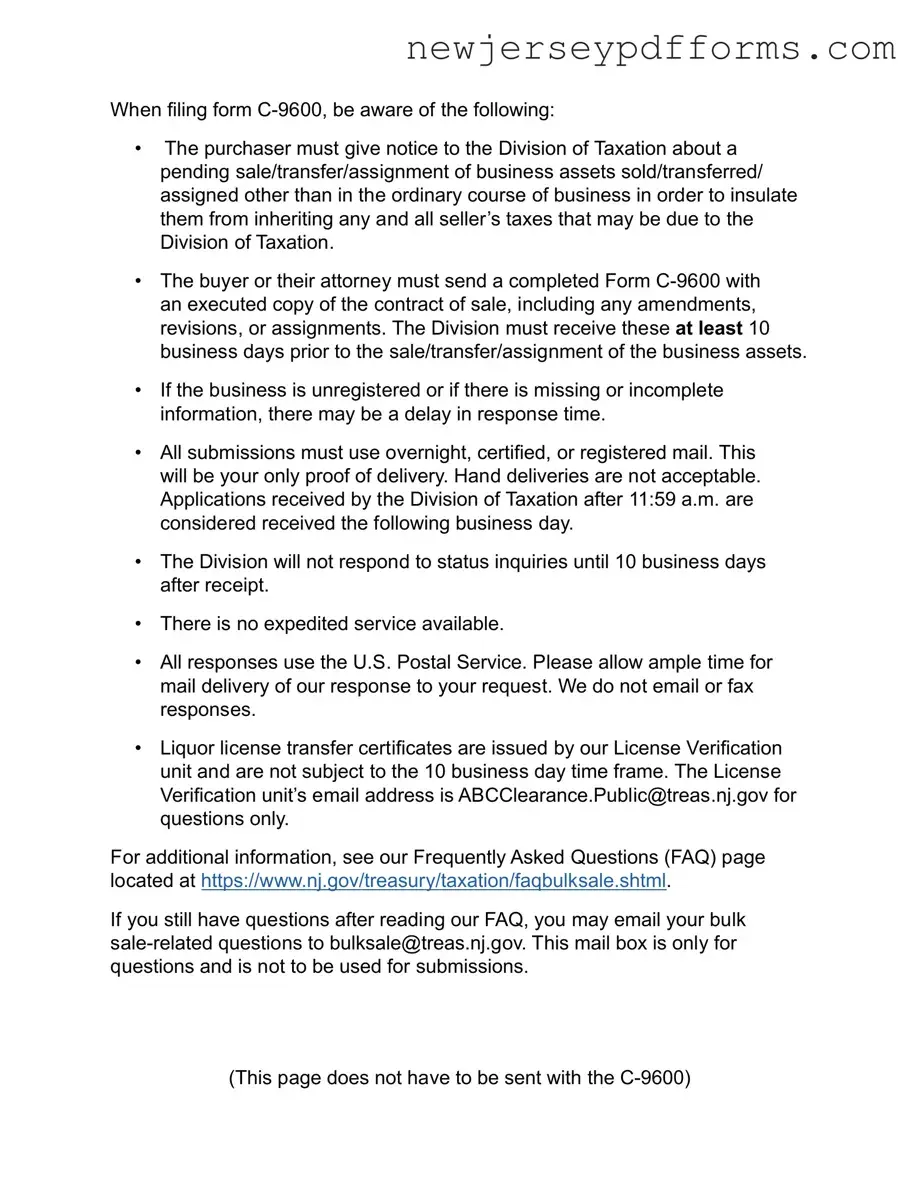Filling out the NJ C-9600 form can be a straightforward process if you take the time to understand the requirements. However, many individuals make common mistakes that can lead to unnecessary delays or complications. Recognizing these pitfalls can save you time and effort.
One significant mistake is failing to notify the Division of Taxation about a pending sale, transfer, or assignment of business assets. This notice is crucial as it protects the purchaser from inheriting any seller’s taxes that may be due. Without this notification, the buyer may unknowingly assume financial liabilities, which can be avoided with proper communication.
Another frequent error involves the timing of submissions. The completed Form C-9600, along with the executed contract of sale, must be sent at least 10 business days before the actual sale or transfer. Delaying this submission can result in complications, as the Division of Taxation will not process requests that arrive late. It is advisable to plan ahead to ensure compliance with this timeline.
Some individuals overlook the requirement to use overnight, certified, or registered mail for submissions. Hand deliveries are not acceptable, and failing to use the correct mailing method can lead to a lack of proof of delivery. This proof is essential for tracking the submission and ensuring it reaches the Division in a timely manner.
In addition, incomplete or inaccurate information can cause delays in response time. It is vital to double-check all entries, including names, addresses, and identification numbers. Any missing details can lead to further complications, requiring additional communication with the Division of Taxation.
Many people also do not account for the fact that the Division will not respond to status inquiries until 10 business days after receipt. This means that patience is required after submission. Understandably, it can be frustrating to wait, but this is a standard procedure that must be respected.
Another common misconception is that expedited service is available. Unfortunately, this is not the case. All responses from the Division will be sent through the U.S. Postal Service, and there is no way to speed up this process. Allow ample time for mail delivery to avoid unnecessary anxiety.
Finally, it is important to note that liquor license transfer certificates are handled separately by the License Verification unit. These certificates are not subject to the 10 business day time frame, and any inquiries should be directed to their specific email address. Confusion in this area can lead to delays in obtaining necessary documentation.
By being aware of these common mistakes, you can navigate the NJ C-9600 form process more effectively. Taking the time to ensure that each requirement is met will help facilitate a smoother transaction and protect your interests as a purchaser.

